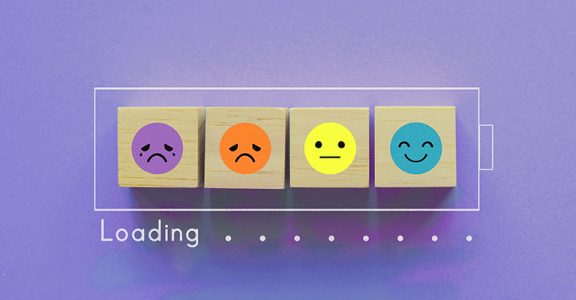What is the difference between depression and grief? How are mental health and grief connected? May is Mental Health Awareness month. As a society, we have stigmatized grief as something that happens, and in a few days, we are expected to return to normal life. Grief seems an ok topic at the funeral home but is shameful or taboo to talk about anywhere else. This mindset may cause us to suffer in isolation and or feel misunderstood when what we really need is connection and to tell our stories. Too many times we are told to get over it, to suck it up, or to just move on because it makes everyone uncomfortable. This silent rule can cause the griever to suffer silently without the proper support or help that they need. It is time to stop the stigma and shame! Let’s talk about our suffering. Let’s tell our loss stories to those we love.
Grief is a normal human reaction to a great loss. It is not a mental illness. It is the body and mind’s way of relearning to live without the presence or influence of that loss. The greatest of these losses is when someone we are attached to dies. We also have other significant losses in our lives that impact us just as great although we may not associate those losses with a time for mourning. For instance, the loss of a job or career, the loss of our mobility or our health, or the loss of a beloved pet. These losses are significant, but we rarely make time for them to heal before we are back to our scheduled lives. When we do not grieve these losses, they accumulate, until we experience a major grief event like the death of a loved one. These accumulated losses may make the grieving much more intense and can prolong the healing we are searching for.
Grief is also necessary. When we are grieving our minds and our emotions reset. We move through denial into the reality of our loss. We allow the pain of grief to help us adjust to a world without our loved one. When we mourn, we connect and make time to feel our suffering. In suffering, we can find a new purpose and meaning. We can find ways to remember and include our loved ones as we create continuing bonds of love we had shared in our “new normal.” In this way, we honor and bring them with us into the future.
Grief is also not to be feared but embraced as part of living life. It is a normal reaction to a severed attachment. Suffering, pain, and the emptiness we feel are all normal experiences in grief. However, if you lose the sense that life is not worth living without your loved ones or you just can find a reason to go on then your grief needs help. Grief and depression can be hard to differentiate but talking to a professional can help greatly. Your grief should improve over time as you allow yourself to move through the phases of grief. There is no set time on how slowly or quickly one moves through the phases but there should be some improvements with time.
Depression rarely improves with time. Depression can have a voice of its own. Depression says you are not alright. Depression feels like grief, but it is subtly different. If you are grieving, then talk to someone you trust about what you are experiencing. Telling your grief story helps grief heal. If you have concerns that your grief is not improving then talk to a professional counselor, your doctor, your pastor, or other mental health professionals. There is no shame in talking to someone about what you are going through. Grief was never meant to be processed alone in isolation. Remember a burden shared lightens the load!
If you have questions or concerns about your grief journey or are just curious about helping someone who is grieving reach out and let’s talk. I would love to meet you and hear your grief story.
Written by Kimberly Talmey


